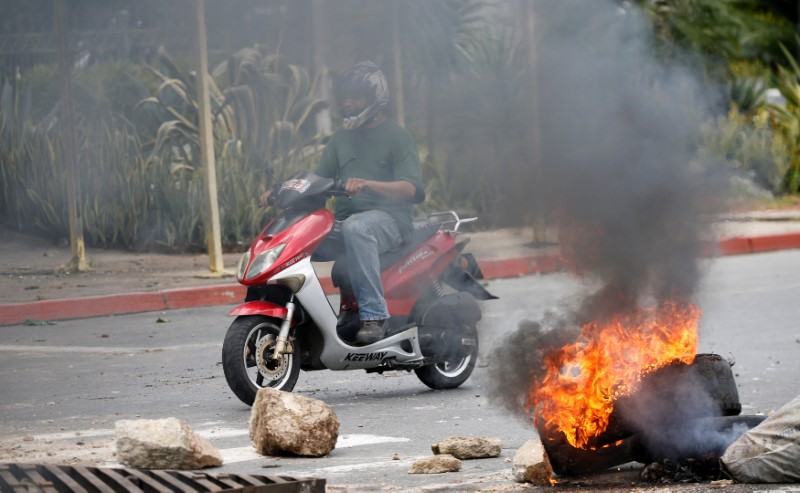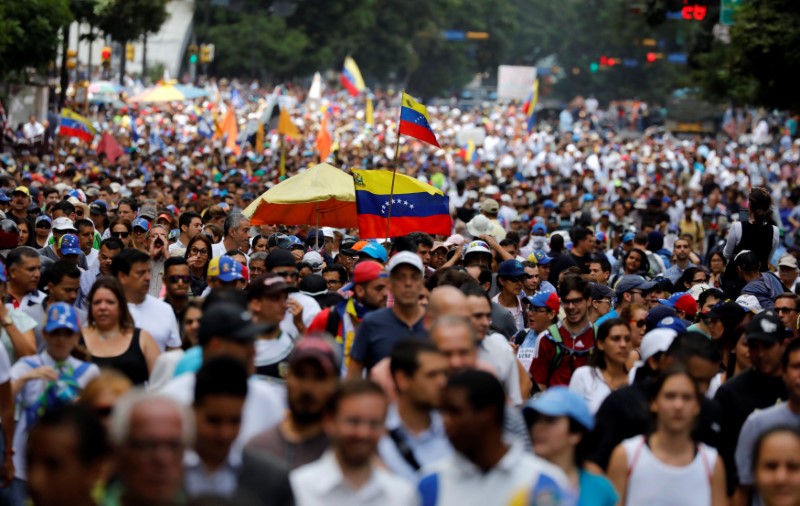
By Maggie Fick
NAIROBI (Reuters) – Kenyan President Uhuru Kenyatta said on Saturday the country has “a problem” with its judiciary that must be fixed.
He was speaking a day after the Supreme Court annulled his election win last month and ordered a new poll within 60 days.
“We shall revisit this thing. We clearly have a problem,” he said, referring to the judiciary.
“Who even elected you? Were you? We have a problem and we must fix it,” he said, speaking on live television at the State House in Nairobi after he met with governors and other elected officials from his Jubilee party.
Kenyatta, however, also repeated his message from Friday that he would respect the court’s ruling.
The decision to annul the election was an unprecedented move in Africa where governments often hold sway over judges — and the first time on the continent that a court ruled against the electoral victory of an incumbent.
The president’s latest comments mark the second time since Friday’s ruling that he has spoken critically about the judiciary in public. On Friday during an impromptu rally in Nairobi, he accused the court of ignoring the will of the people and dismissed the chief justice’s colleagues as “wakora”, or crooks.
The president’s public appearances since the ruling suggest he intends to campaign rigorously ahead of the re-run of the Aug.8 poll.
He said via Twitter on Saturday: “For now let us meet at the ballot.”
Attention now turns back to the election board. The court ruled that it had “failed, neglected or refused to conduct the presidential election in a manner consistent with the dictates of the constitution”.
Raila Odinga, the veteran opposition leader whose coalition brought the petition against the election board to the Supreme Court, said on Friday that some officials from the commission should face criminal prosecution.
The chairman of the election board said there would be personnel changes, but it was not clear if that would be enough for the opposition. Sweeping out the whole board would complicate efforts to hold a new poll within two months.
Last month’s election — which included the presidential poll in addition to races at other levels of government — was one of the most expensive ever held in Africa. Ahead of the vote Kenya’s treasury said preparation and execution of polling would cost the equivalent of around $480 million.
VEILED THREATS
Analysts saw the president’s latest comments on the judiciary as a worrisome development.
“It’s extremely unfortunate that Kenyatta seems to be issuing veiled threats at the judiciary,” said Murithi Mutiga, a Nairobi-based senior Africa analyst at the International Crisis Group.
“This was a tremendous moment for Kenyan democracy, where the court upheld the rule of law. Politicians should be careful not to incite the public against the judiciary.”
On Friday, Chief Justice David Maraga said the Supreme Court’s verdict was backed by four of the six judges and declared Kenyatta’s victory “invalid, null and void”.
Details of the ruling will be released within 21 days.
Prior to last month’s election Maraga spoke out to emphasize the judiciary’s independence.
In a statement he read out on behalf of the Judicial Service Commission less than a week before the election, he listed instances in which politicians — from the ruling party and the opposition — had tried to intervene with the judiciary’s work.
“The emerging culture of public lynching of judges and judicial officers by the political class is a vile affront to the rule of law and must be fiercely resisted,” the statement read. “We wish to state that … the judiciary will not cower to these intimidating tactics.”
Kenya’s judiciary went through sweeping changes in a bid to restore confidence in the legal system after the bloodshed following the 2007 election.
(Reporting by Maggie Fick; Additional reporting by George Obulutsa; Editing by Jeremy Gaunt)














